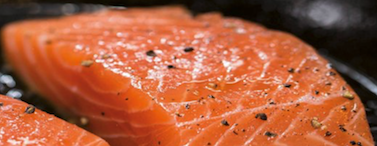Marine Scotland Science has published the Scottish Fish Farm Production Survey 2018, giving details on production and employment at Scottish fish farms.
The survey shows production of Atlantic salmon decreased by 33,682 tonnes (17.8%) to 156,025 tonnes in in 2018.
In 2017, production of Atlantic salmon in Scotland had increased by 26,890 tonnes (16.5%) to 189,707 tonnes — the highest ever level — representing a value of more than £1 billion.
In 2018, production tonnage of rainbow trout decreased by 16% in 2018 to 6,413 tonnes.
Brown trout/sea trout production decreased from 61 tonnes in 2017 to 20 tonnes in 2018.
The total number of staff employed in marine salmon production during 2018 increased by 77 to 1,466 staff.
Julie Hesketh-Laird, chief executive of the Scottish Salmon Producers’ Organisation (SSPO) said: “The long-term outlook for Scottish salmon production remains strong driven by focused investment by farmers.
“Farm-raised salmon spend more than 18 months at sea, allowing farmers to anticipate annual production levels.
“The anticipated dip in production in 2018 was the result of a one-off adjustment by farmers on stocking the year before to ensure control over some biological issues which had been witnessed in previous years.
“The result was that in 2018 there were fewer fish in the water to harvest.
“The outlook for 2019 is good with production predicted to be up because of adjusted stocking levels and good continued management of fish health, and in line with the general trend of growth which has characterised the Scottish salmon sector over the last few years.”
Fisheries Secretary Fergus Ewing said: “Aquaculture is vital to our rural economy, generating more than £620 million of added value to the Scottish economy every year, and supporting thousands of jobs in some of our most fragile coastal communities.
“So it is essential that we support our aquaculture sector and its sustainable growth, to ensure that economic opportunities are maximised, whilst ensuring the highest standards of animal welfare and environmental protection.
“We continue to work with Parliament, the sector and other key stakeholders to improve fish health through our Farmed Fish Health Framework, and ensure that Scottish farmed fish retains its reputation as being amongst the best in the world.
“The statistics serve as a timely reminder that the EU remains our largest trading partner for overseas exports, demonstrating the critical importance of maintaining frictionless trade with the European Single Market for our aquaculture industry.
“The consequences of a no deal Brexit cannot be underplayed and threatens not only the success of Scottish aquaculture, but jobs, investment and living standards across the whole of Scotland.
“That is why we continue to press the UK Government to take a No Deal Brexit off the table immediately.”
